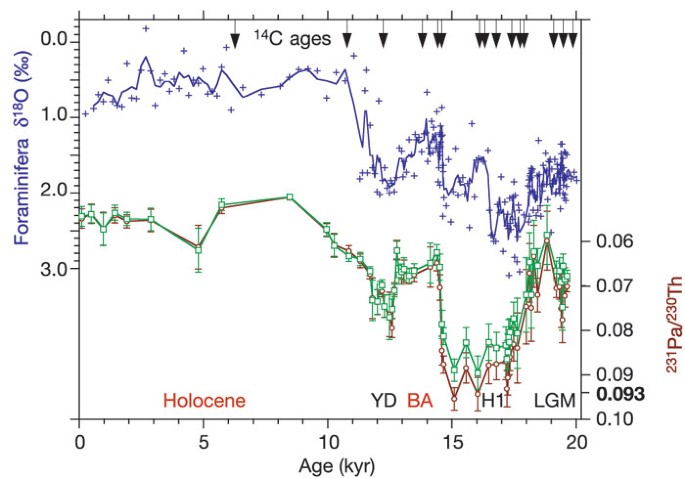Fort Fun Indiana
Diamond Member
- Mar 10, 2017
- 99,423
- 78,140
- 3,645
Oops, no mention of 1.5 degC in 100 years.A key claim by the climate community is that today's rate of warming - 1.5C in 100 years - is unprecedented. Never before has temperature risen so fast. I have yet to see them ever support their claim with data.
Here is definitive proof that that claim is fraudulent.
"...the Eemian was punctuated by many short-lived cold events, as shown by variations in electrical conductivity (a proxy for windblown dust, with more dust indicating colder, more arid conditions) and stable oxygen isotopes (a proxy for air temperature) of the ice were used by these workers infer the climatic conditions during the Eemian. The cold events seemed to last a few thousand years, and the magnitude of cooling was similar to the difference between glacial and interglacial conditions; a very dramatic contrast in climate. Furthermore, the shifts between these warm and cold periods seemed to be extremely rapid, possibly occurring over a few decades or less...."
Sudden climate changes in the recent geological record
Hmmmm.... examples of extreme natural warming and cooling trends within an interglacial period which occurred suddenly.
Opps... there goes that unprecedented warming theory.
Did you forget to copy paste that part?
